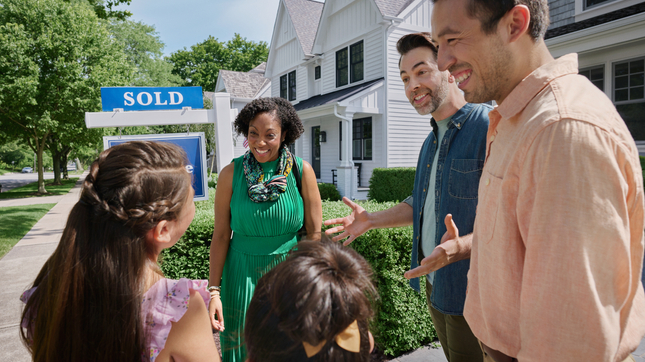How Home Buyers Evaluate Agents for Trustworthiness


Zillow Premier Agent
October 29, 2019
4 Minute Read

Home buyers differ from each other in hundreds of ways, but one thing that binds them during their home-buying journey is a need to trust their agent.n
Trustworthiness is very or extremely important to 81% of buyers who use an agent. In fact, an initial impression of trustworthiness ranks highest on a list of desired characteristics that buyers look for in an agent, according to the Zillow Group Consumer Housing Trends Report.*
About the same percentage (80%) place high importance on responsiveness, which is tied to trust since most of us are likely to gravitate toward someone who listens and responds to our needs. This can be especially true in high-stakes transactions like buying a home, when we often need information, advice and a sounding board.
Information and an emotional connection
So how can you communicate trustworthiness in a real estate landscape where buyers tend to find agents online and through referrals?
Social psychology researchers identify two kinds of trust: cognitive trust, which is based on information, and affective trust, which is the emotional connection we have with others based in part on how we feel when we interact with them.
Successful agents build on both, providing relevant information at every step of the home-buying journey. They take responsibility for the things buyers cannot do themselves and practice empathy as buyers navigate what is likely to be one of the most significant purchases of their lives, according to Bret Calltharp, Director of Industry Outreach at Zillow Group.
Trust = integrity, competence, transparency
Research conducted by Forrester identified three qualities that drive trust among consumers: integrity, competence and transparency. Demonstrating those qualities in person is what relationship building is about. A bigger challenge is to show those qualities to buyers who know nothing about you, and whose first exposure to you may be online.
Zillow’s research shows that the 76% of buyers who seek out information to evaluate agents turn to a few main sources. Aside from referrals from family and friends, which are the biggest sources:
- 27% of buyers use online reviews to evaluate agents.
- 26% get information from agent or broker websites.
- 23% research an agent’s past sales history.
- 21% look for evidence of an agent’s knowledge of the market and the area.
Young buyers contact more agents
Younger buyers are more likely to place importance on online reviews and agent ratings when choosing an agent, and they’re more likely to shop around.

nOn average, buyers contact two agents: 52% of all buyers contact just one agent, 23% contact two and 25% contact three or more. However, younger buyers, the majority of whom are purchasing a home for the first time, are more likely to contact multiple agents.
Millennials contact about one more agent on average than baby boomers (2.7 versus 1.6). And 57% of first-time buyers consider multiple agents, compared with 41% of repeat buyers.
When those buyers find you online, it’s up to you to convey that you have the integrity, competence and transparency to partner with them on their journey.
Takeaways:
- Carefully curate your online presence. Reviews and testimonials are incredibly beneficial to establishing trust, according to Calltharp: “It’s one thing to tell people how great you are; it’s quite another to inspire others to tell people how great you are.” Calltharp, who has advised thousands of agents during his 15-year career in residential real estate, says written testimonials are good, but video testimonials are even better for building trust.
- Social media posts should be for your customers. If you’re posting five times a week on Facebook, four of those posts should be educational and/or entertaining. Only one should be aimed at sales, Calltharp says. Also, be mindful of how you frame your success online. “Your audience would much rather see five photos of happy clients at their closing than five selfies,” he says. “Humility goes a long way.”
- Take a broad view of transparency. Think in terms of comprehension, not just disclosure. First-time buyers, who account for 45% of people who bought a house in the last year, have a steep learning curve. Invest in their understanding.
- Keep your word. This simple advice bears repeating: Do what you say you’re going to do. Every time. Consumer research shows that people can lose trust after just one bad interaction.
- Listen twice as much as you speak. Clients need to feel heard, have their problems and questions acknowledged, and then hear back on a plan of attack to address any issues that might come up over the course of a transaction, according to Calltharp.
- Stay connected. “Great agents are proactive while also being reactive,’’ Calltharp says. “Find systems and strategies to address the ‘on demand’ desires of today’s consumer. Err on the side of communicating too often. Silence is anxiety’s playground.”
*Data comes from both the 2018 and 2019 Zillow Group Consumer Housing Trends Report, based on 3,000 households who purchased a home in the past year and moved residences.
Zillow works for agents
We're here to support you and your clients on their journey home. Discover how we can help grow your business today.
Learn more
